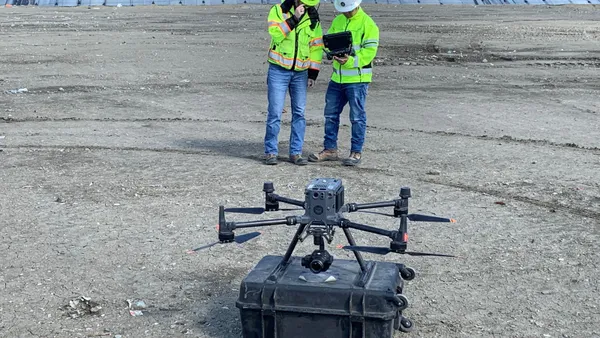Dive Brief:
- Nebraska-based BioResource Development will begin collecting and cleaning gas from the 160-acre Sarpy County landfill by the end of the year, as reported by the Omaha World-Herald.
- The contract was finalized in 2016, after Sarpy County put out a request for proposals to help mitigate the odor coming from the soon-to-be-capped landfill. BioResource Development is installing new wells with vacuums to collect gas, which will be sold to a local utility. Black Hills Energy, the utility that serves the county and will pay for the cleaned methane from the project, has already built a 3.5 mile pipeline to connect the landfill to its larger distribution pipeline.
- BioResource Development will take on the responsibilities of monitoring and ensuring air quality compliance for the landfill, saving Sarpy County an estimated $100,000 each year. Additionally, the county will get a 2.5% cut from the sale methane to Black Hills, earning an estimated $100,000 annually.
Dive Insight:
This move comes just under a year after the official announcement that the Sarpy County landfill would finally close, sparking some local debate over environmental and infrastructure concerns. The landfill far outlived its initial projected lifespan of 18 years, after opening in 1990. Local residents and farmers say the gasses coming off the project create a odor that can be detected for miles, though a successful landfill gas capture program is expected to help mitigate those complaints.
It is an interesting time for landfill gas projects across the U.S. A recently-introduced bill in Congress, for example, could extend tax credits to LFG, making the operations more profitable. Recent developments seem to indicate a continued interest in landfill gas projects. The Environmental Protection Agency is watching trends such as larger yields from fewer projects, converting LFG to vehicle fuel and a growing interest in organics diversion — indicating a dynamic marketplace.
As with most things in Washington, though, it is unclear at this time how successful a tax reform bill, let alone a bill focusing on landfill gas and other waste-related energy projects, could be. Additionally, guidance and rulemaking from the Environmental Protection Agency regarding emissions standards for landfills is slow-moving. Financially, it appears to be a good time for LFG projects. Operationally, however, it seems confusion over emissions compliance could persist, complicating landfill sites.









